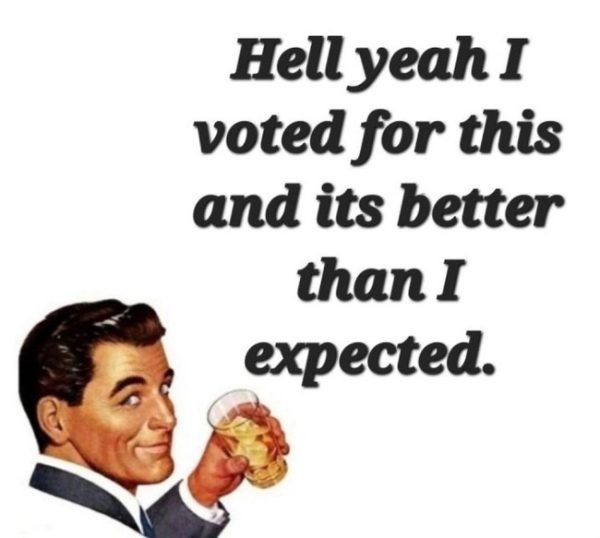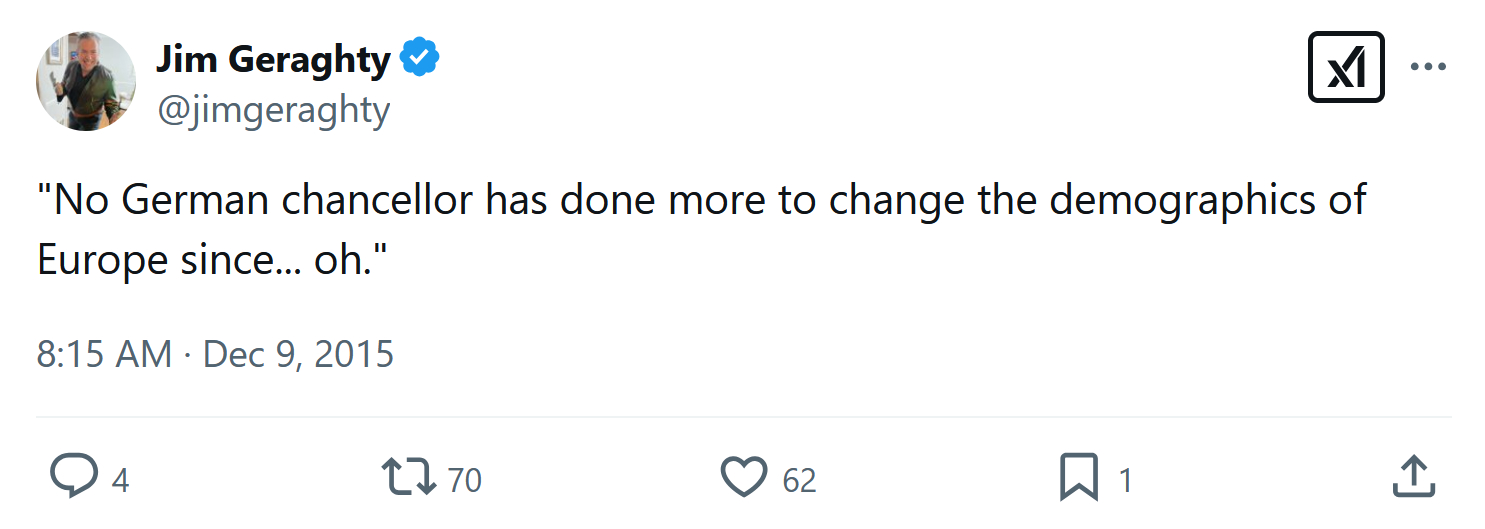JOHN PODHORETZ: Review: Brave New World. Or Captain America: Brave New World. Or something. Who knows.
The movie Captain America: Brave New World isn’t named that except in the ads. On screen, the title card reads Brave New World only. I don’t know why this is, but there’s something weirdly honest about it.
The movie centers on the woes of Sam Wilson—a minor Avenger nicknamed Falcon before he was given a magical shield and a much better superhero handle in the final scene of the Marvel Cinematic Universe climax, 2019’s Endgame. Sam doesn’t feel up to the job of being Captain America. And guess what? He isn’t. Now, the movie doesn’t say that. I am saying that. But Marvel knows I’m right. Maybe that’s why the words “Captain America” don’t appear on the title card.
The movie can’t decide if Sam is being made to feel less-than by our evil white supremacist culture, given that Sam is black—or whether he’s exhausted because he feels like he must represent all underrepresented people, because he’s black. All I’m saying is, he’s black, and that’s pretty much all the movie is saying about Sam Wilson, who appears to have two friends and no family and no backstory and is of absolutely no interest as a character. The original Captain America, Steve Rogers, had a wonderful backstory in which he was a 90-lb. weakling genetically engineered during World War II into a giant hunk of a guy who only agreed to the tampering to help save his country but found himself relegated to being a show pony in patriotic pageants. Apparently only white guys get good backstories.
If Sam weren’t as good as Steve Rogers, that would be evidence he was only chosen to carry the shield because he was black. Now, in one sense, that would be fine, no? I mean, if Sam is there to represent the marginalized people in our society, then he was a diversity hire—and what would be wrong with that in the eyes of Hollywood’s liberal culture? After all, Hollywood literally casts roles by putting out casting calls and saying which parts need to be “diverse.”
On the other hand, why couldn’t Sam Wilson be just as good a Captain America as a white guy? Perhaps he could have been… if he weren’t played by Anthony Mackie. While we’re supposed to decide by the end of this picture that Sam Wilson is just as magnetic and compelling as Steve Rogers, Marvel can’t fix what’s wrong with Anthony Mackie as a performer.
His problem is that he is nowhere near as magnetic or compelling as Chris Evans, who played the original Captain America in eight Marvel films. He’s a decent second banana, with good timing when it comes to throwaway lines and insults he doesn’t mean, but he is entirely without charisma. You look at other actors when he’s on screen. He’s like an anti-star.
This is one of those worst Marvel pictures, so boring that it gives you time to reflect deeply upon what makes it so bad while you’re watching it. There are so many things wrong here that I will only mention three.
Unmentioned by Podhoretz, but discussed by Seth Mandel at Commentary is another thing wrong with the new Captain America movie: The Great Erasure Is Here.
For the duration of the recent explosion in anti-Semitism in the West, the Jewish community has been warning of the erasure of Jewish and Israeli people and symbols from the public square. And now that has been done by Disney and Marvel studios in its major film franchise—and the response has been muted.
To say that this is a bleak portent for the future of American Jewish belonging would be an understatement.
The background, in brief, is as follows. Marvel, which is owned by Disney, announced a couple of years ago that it was finally bringing its Israeli superhero, Sabra, into the film franchise, though it soon became clear she would be a minor character in someone else’s story. There was an immediate uproar—Sabra is proudly Israeli (in the comic books, she works for the Mossad) and identifiably Jewish, her uniform consisting of a blue and white pattern with a Jewish star in the center. The entertainment world was up in arms that such a person would share the screen with their childhood heroes.
Marvel relented and assured everyone that the character, Ruth Bat-Seraph, would be reinterpreted, without explaining what the changes would be. In the end, Captain America: Brave New World remade the character into an Israeli-born, Russian-trained American superagent. She wears a business suit. She blends nicely into the background. “No one will even remember her,” writes Vulture’s Darrin Franich.
In a way, Disney and Marvel’s cowardice did us one favor: The fact that the character, played by Israeli actress Shira Haas, drew protests at movie theaters can put an end to claims that critics are motivated by anything other than the existence of Israeli people anywhere on earth.
Ironically, the controversy may have been the only interesting thing about the movie. The reviews suggest it would have to be much better than it is in order to be considered merely “bad.” You may not remember Ruth Bat-Seraph after it’s over, but it appears you won’t remember anything or anyone at all, and that such amnesia will be a blessing. There was one fleeting cameo appearance by another actor who, according to Adrian Hennigan writing in Haaretz, “briefly threatened to wake the audience up, because otherwise I’m struggling to recall the last time I saw such a tedious superhero film.”
Hennigan notes that the word “Mossad,” which is in Sabra’s backstory, isn’t mentioned in the movie. He doubted she’d even be back in another film and observed that “Unless Trump also takes over Marvel Studios, Sabra is definitely not getting her own movie.”
Is this entire kerfuffle simply because Disney couldn’t talk Scarlett Johansson into a cameo in the new Capt. America movie? In any case, as the Forward quips, “‘Captain America’ has 99 problems, and an Israeli superhero ain’t one.”




